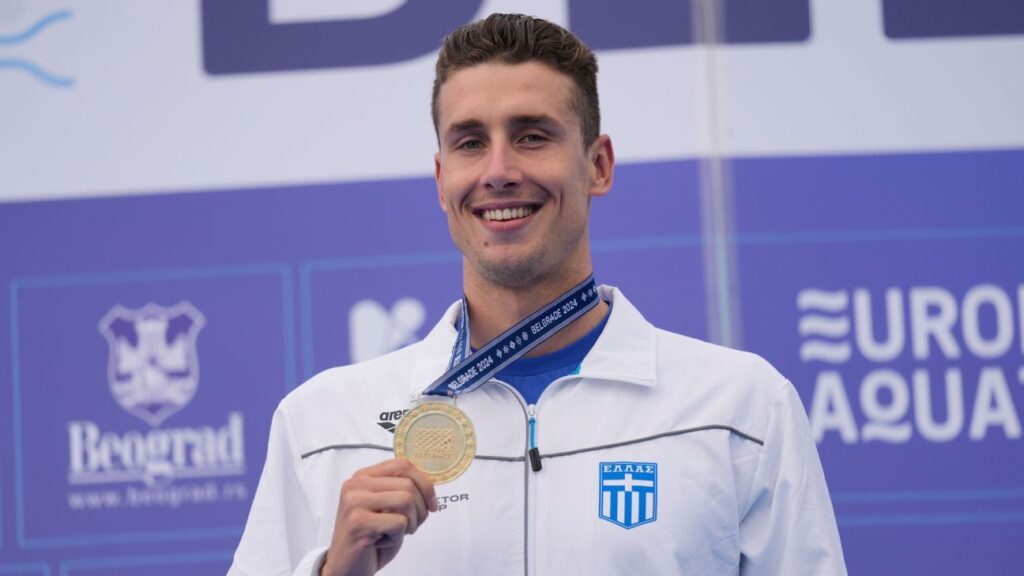
LAUSANNE, Switzerland — The World Anti-Doping Agency (WADA) has called upon U.S. authorities to intervene and prevent the controversial Enhanced Games from taking place in Las Vegas next year. The games, scheduled for May, promise significant financial incentives for athletes who break world records using performance-enhancing drugs under medical supervision.
WADA President Witold Banka, speaking at a meeting of Olympic sports bodies, emphasized the potential dangers of the event. “We will urge the U.S. authorities to find legal ways to block this initiative,” Banka stated, highlighting the health risks and ethical concerns associated with normalizing drug use in sports.
Controversy Surrounding the Enhanced Games
The Enhanced Games organizers have pledged $1 million bonuses for athletes who surpass world-record times, a move that has sparked widespread criticism. Banka warned that the initiative could undermine the integrity of sports and pose significant health risks to athletes.
“This initiative seeks to normalize the use of potentially dangerous drugs,” Banka told leaders of Summer Olympics sports at the annual meeting of ASOIF, the umbrella group for these sports. “For the sake of athlete health and the purity of sport, it must be stopped,” he asserted.
Legal and Ethical Implications
Banka, a former sports minister in Poland, suggested that the Enhanced Games could face legal challenges both in Nevada and at the federal level. “This is something that has to be explored from the legal perspective,” he noted. “I cannot imagine, for instance, doctors giving the drugs to the athletes. It is completely against the values of their work.”
He also pointed to the role of the U.S. Anti-Doping Agency (USADA) in addressing the issue. “The main thing is this event is going to be located in the U.S., so I think there is a strong role to be played by USADA,” Banka said, despite the historically strained relationship between WADA and the American agency.
Reactions from USADA and Other Stakeholders
USADA’s chief executive, Travis Tygart, responded sharply to Banka’s comments, questioning his understanding of democratic societies and markets. “Banka’s indignation equals his misinformation or ignorance about how free democratic societies and markets work,” Tygart said, challenging Banka to address the issue at an upcoming U.S. Senate hearing focused on WADA.
“If he really wants to ask U.S. authorities to do something, he should show up and ask the Senate to do something,” Tygart added, underscoring the complexity of navigating legal and ethical frameworks in such cases.
Financial and Political Backing
The Enhanced Games have attracted investment from notable figures, including a group backed by Donald Trump Jr. The project’s business model involves selling personalized supplements and substance plans to subscribers, raising further ethical concerns.
Banka suggested that the timing of the Enhanced Games, in close proximity to the 2028 Los Angeles Olympics, is “very embarrassing” for the U.S. Swimming’s governing body, World Aquatics, has already announced it will ban athletes, coaches, and officials who participate in the Enhanced Games.
Implications for the Future of Sports
This development comes as the sports world grapples with ongoing debates about the role of performance-enhancing drugs. The Enhanced Games represent a radical departure from traditional views on doping, challenging the foundational principles of fair competition.
As the controversy unfolds, the potential consequences for athletes, sponsors, and the broader sports community remain uncertain. The situation underscores the need for clear legal and ethical guidelines to navigate the complex intersection of sports, health, and commerce.
Looking ahead, the response of U.S. authorities and international sports bodies will be crucial in determining the fate of the Enhanced Games and setting precedents for similar initiatives in the future.





